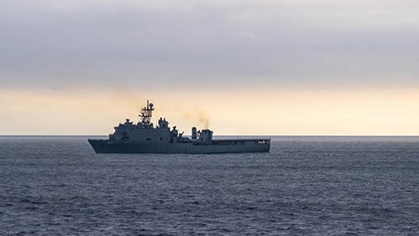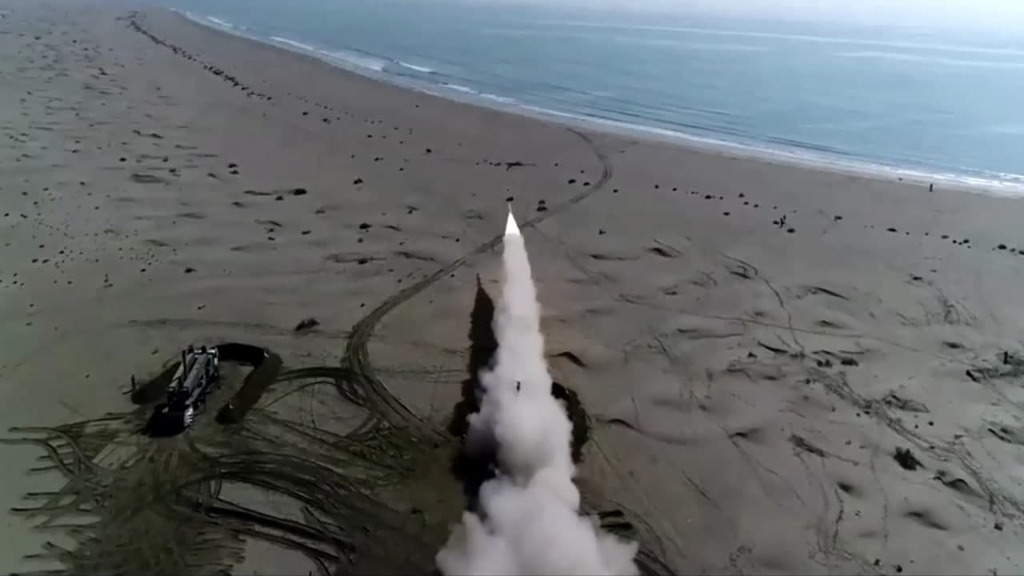Getting your Trinity Audio player ready...
Forces from the United Arab Emirates, Bahrain, Israel and the United States Naval Forces Central Command (NAVCENT) began a multilateral maritime security operations exercise in the Red Sea on Wednesday, NAVCENT said on Thursday.
This is the first publicly acknowledged naval exercise between the United States, Israel and the two Gulf countries.
3 View gallery


The USS Portland taking part in a joint military drill with Israel, the UAE and Bahrain in the Gulf
(Photo: U.S. Navy)
The UAE and Bahrain last year normalized diplomatic relations with Israel under a U.S.-brokered deal known as the Abraham Accords, brought together by shared worries about Iran and hopes of economic gains.
The five-day exercise includes training on the USS Portland vessel and will "enhance interoperability between participating forces' maritime interdiction teams", the statement said.
"Maritime collaboration helps safeguard freedom of navigation and the free flow of trade, which are essential to regional security and stability," said Vice Adm. Brad Cooper, commander of NAVCENT, U.S. 5th Fleet and Combined Maritime Forces.
The U.S. 5th Fleet is based in the Gulf island state of Bahrain and operates in the Arabian Gulf, Gulf of Oman, Red Sea and parts of the Indian Ocean
Iran announced on Sunday its own large-scale sea, land and air military drill will be held east of the Strait of Hormuz, the Sea of Oman, and the northern parts of the Indian Ocean.
"The military exercise in Iran's coast on the Gulf of Oman aims to display the country's military might and readiness to confront our enemies," Rear Admiral Mahmoud Mousavi, the spokesman for the Zolfaqar-1400 drill, told state television.
Amir Ali Hajizadeh, commander of the Aerospace Force of the Islamic Revolutionary Guard Corps said any mistake made by Israel would expedite its destruction. Speaking to the local Tasnim news agency, Hajizadeh added that Israel could launch a war, but Iran will finish it.
Video of the drill released by Tehran showed the launch of a Qader ballistic missile which the military claims is able to reach targets up to 300 kilometers (186 miles) away.
UAE's state news agency reported on Thursday that Foreign Minister Abdullah bin Zayed spoke by phone with his Iranian counterpart Hossein Amir-Abdollahian. The two discussed bilateral relations and ways to bolster them as well as tackle challenges posed by climate change.



